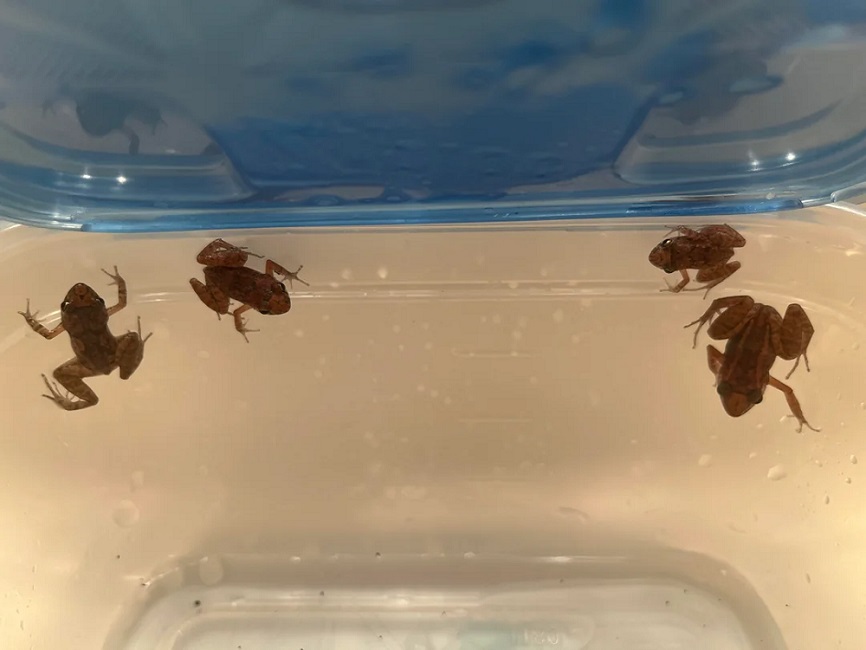A gardener was surprised to find some unexpected guests had hitched a ride to their home state, leaving them wondering what to do with the critters.
"Accidentally brought these frogs up north from Florida in my plant. Id? What do I do?" the original poster wrote in the r/herpetology community on Reddit, sharing a photo of four frogs temporarily housed in a container.

One Redditor identified the amphibian as Eleutherodactylus planirostris, commonly known as the greenhouse frog, to which another replied: "This is what I think as well. They love to hang out in potting soil."
Classified as an invasive species by the U.S. Fish and Wildlife Service, greenhouse frogs are native to Cuba, the Cayman Islands, and the northern Bahamas.
While releasing such tiny creatures back into the wild may not seem like a big deal, introducing invasive animals or plants to an ecosystem can have unintended consequences, causing a massive headache in the long run.
In the case of the greenhouse frog, it may negatively impact native species by contending for the same food sources, such as insects, as well as provide key nutrition for unwanted disease-carrying invasive rats, among other things, per the FWS.
Meanwhile, invasive plants often create the need for frequent yard work and even cause property damage — as more than one person has found out the hard way. Rewilded yards, or natural lawns seeded with pollinator-supporting clover, require significantly less maintenance. They also have the benefit of reducing costs associated with lawn care (including water bills).
Ultimately, most Redditors agreed that the OP needed to choose their next steps wisely.
"DON'T RELEASE THEM!!! That could cause an invasive species," one person warned.
Some commenters also suggested the OP should adopt the amphibians as pets. However, while frogs can make good pets, as BeChewy points out, wild animals are best left outside because they can carry parasites and may not adapt well to captivity.
"You could always give them to a reptile sanctuary," another person recommended.
Join our free newsletter for easy tips to save more, waste less, and help yourself while helping the planet.









